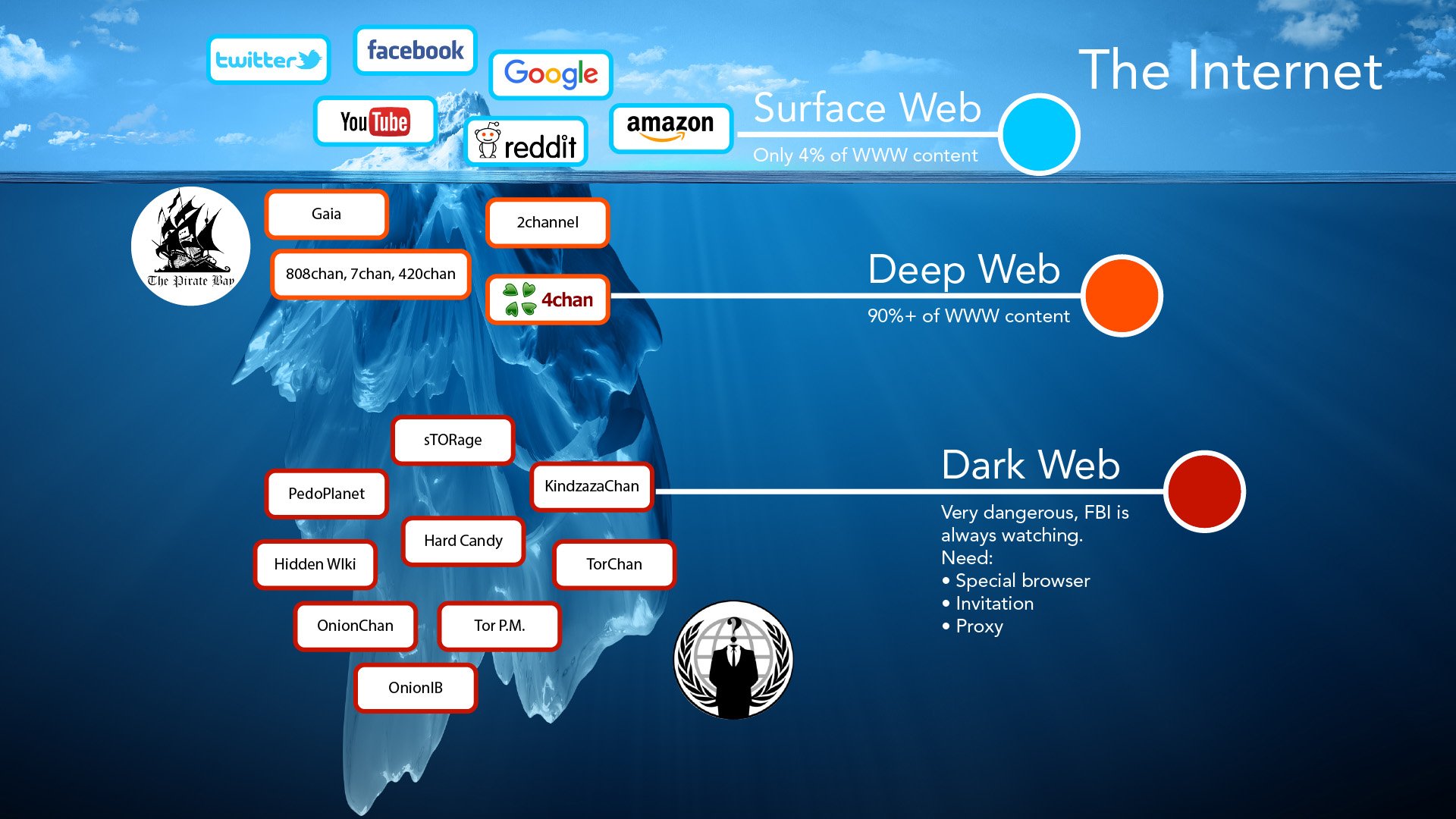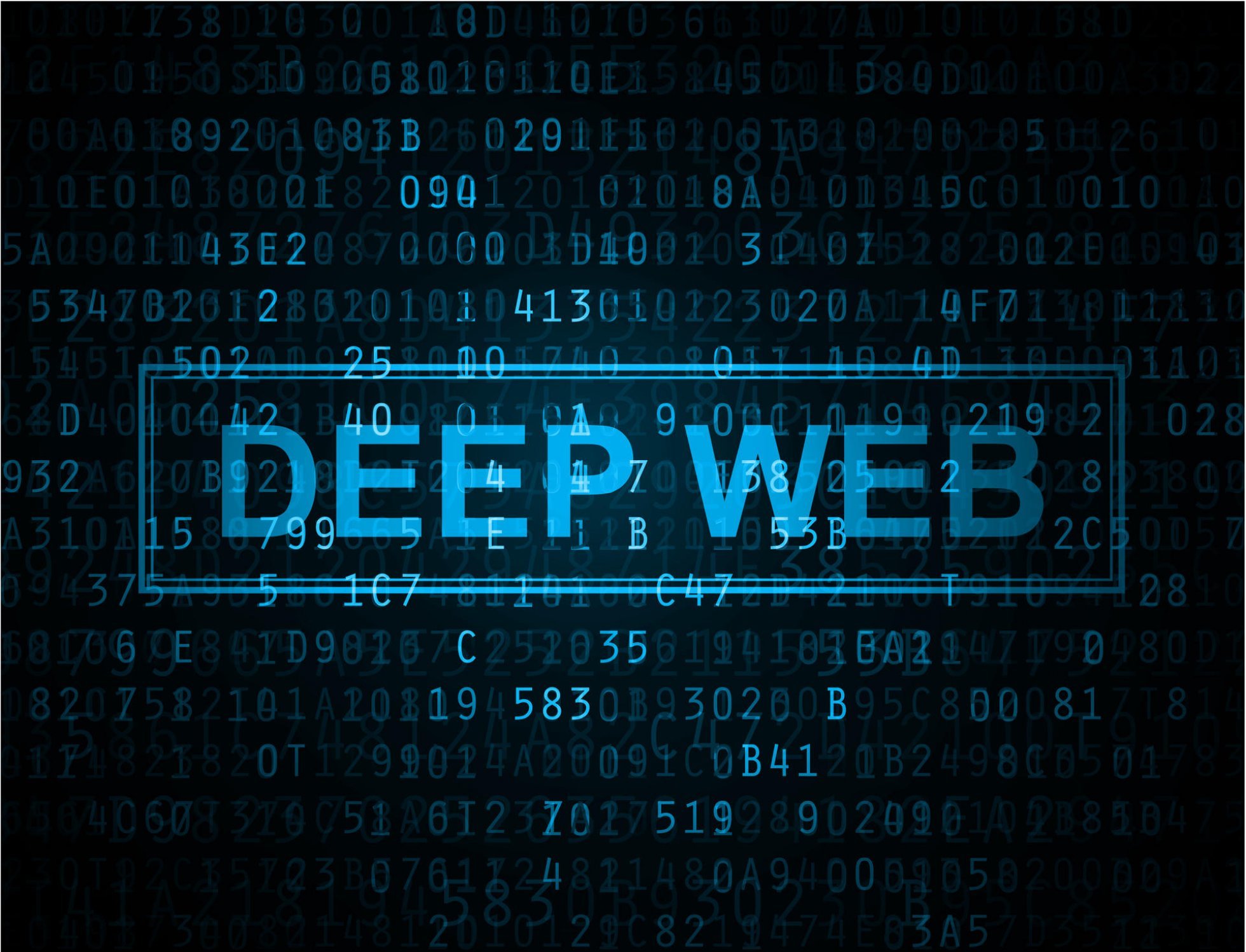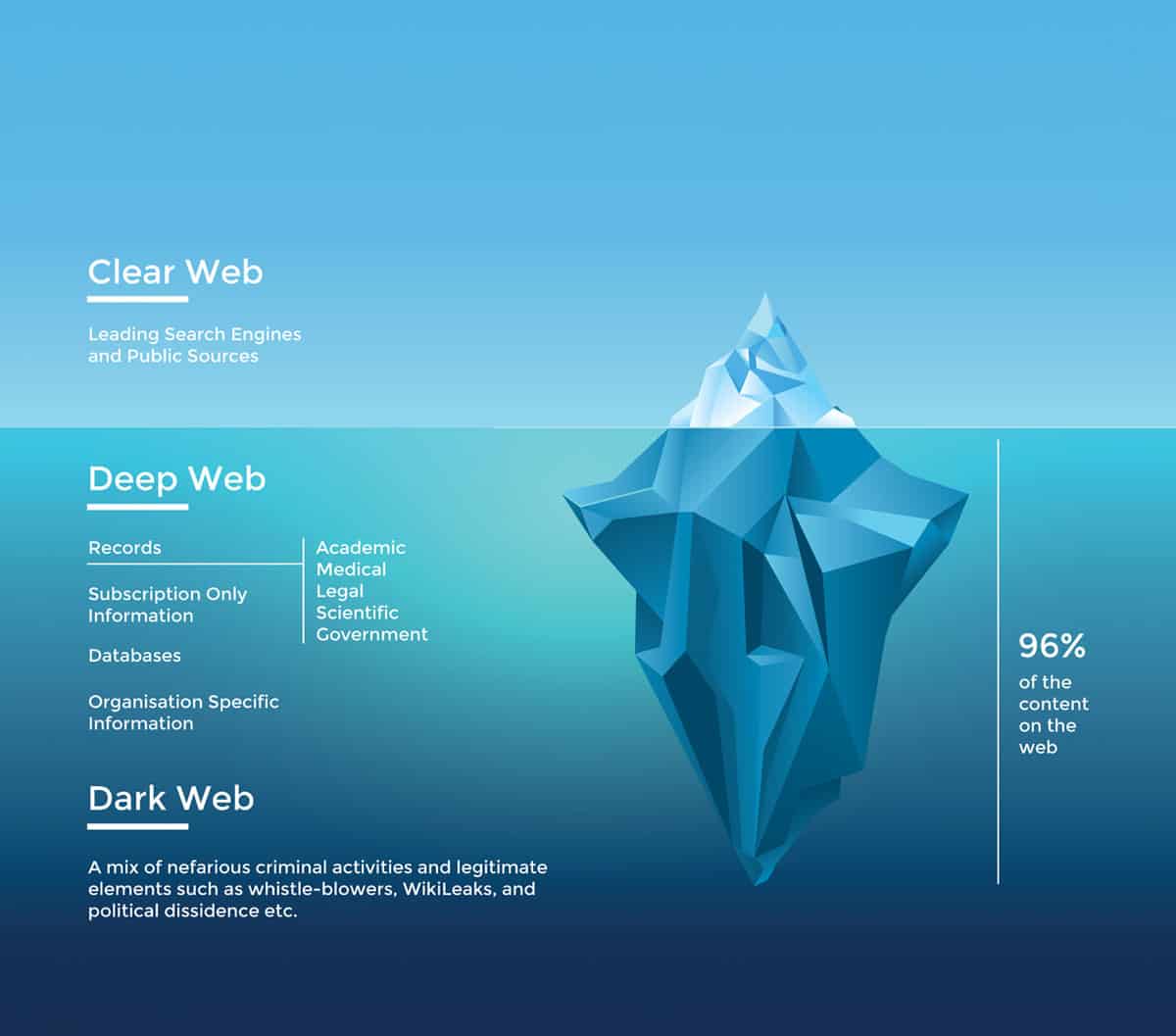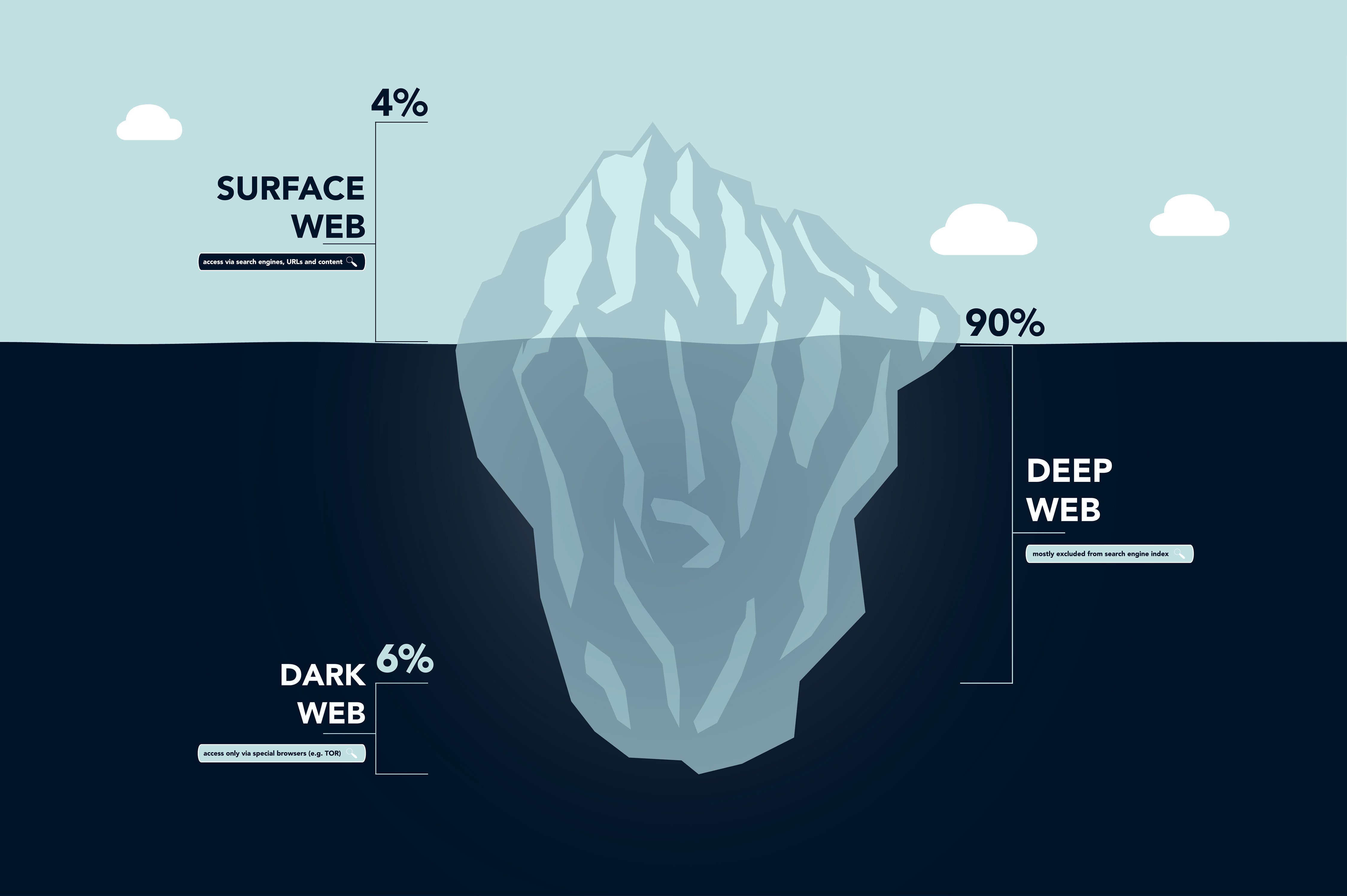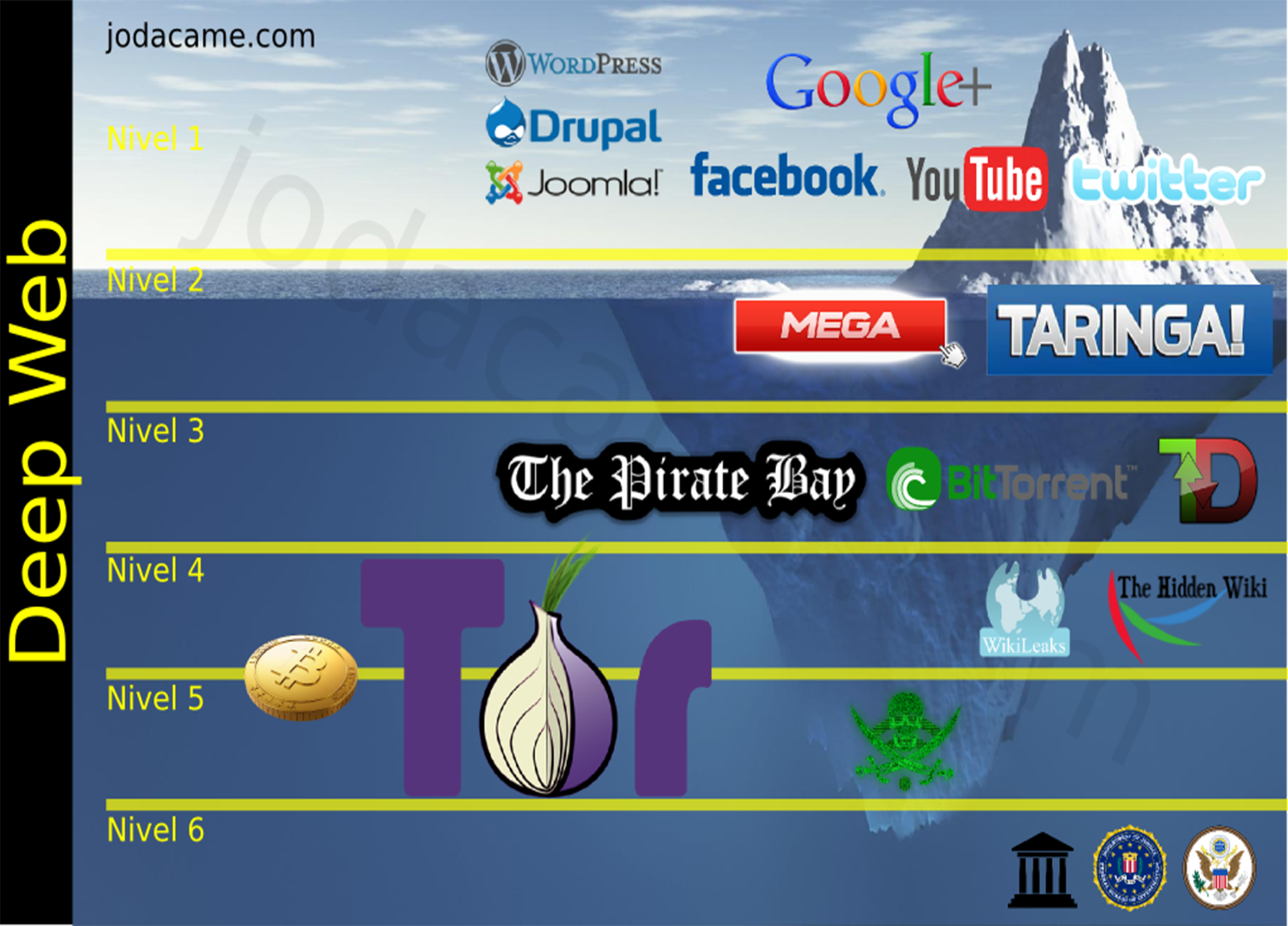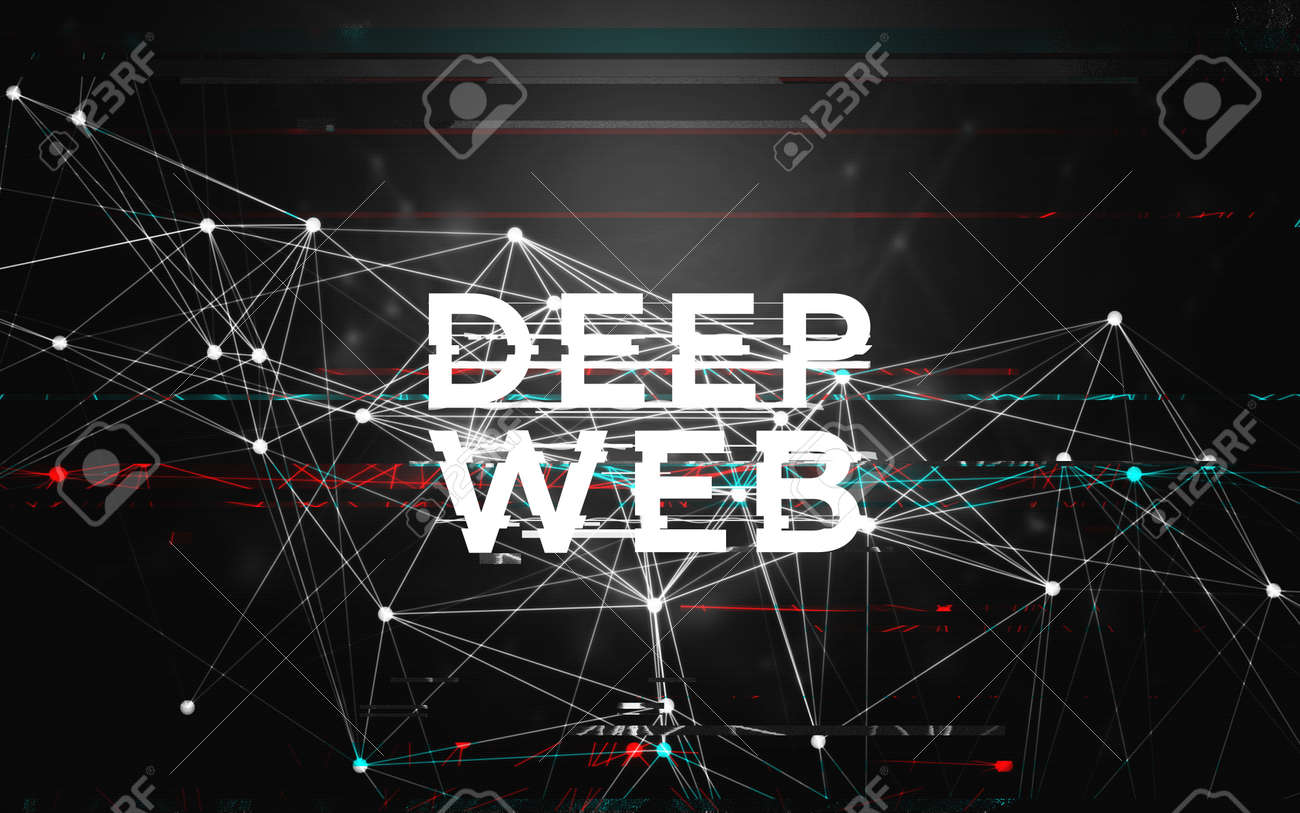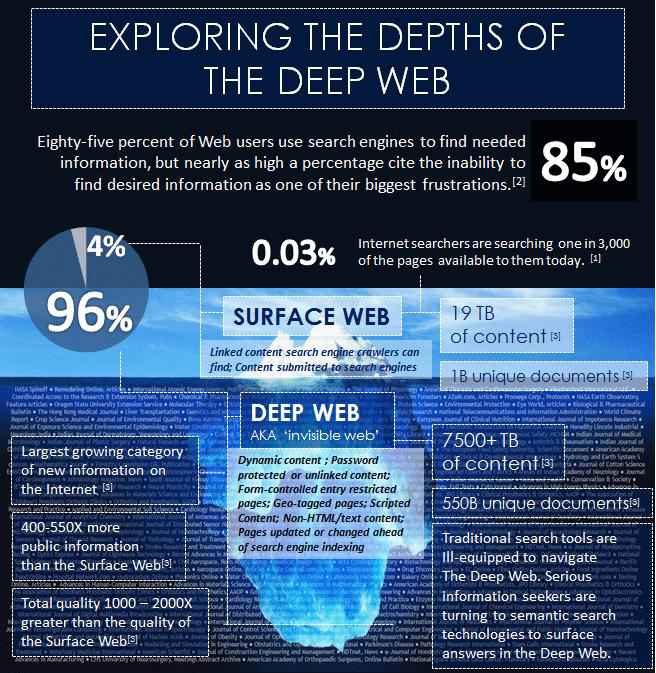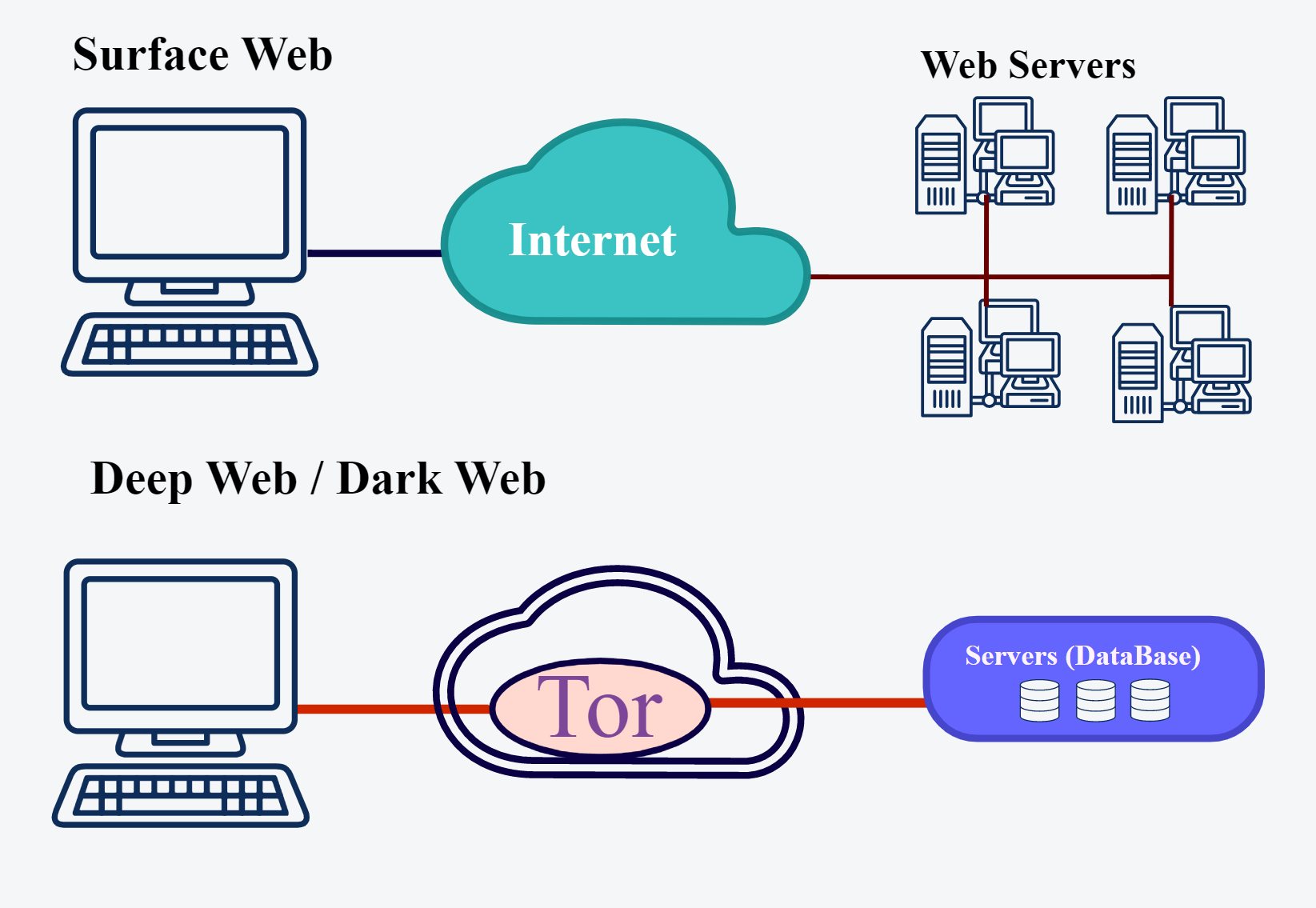Apr 29, 2023
The Future of Dark Markets on the Deep Web in 2023
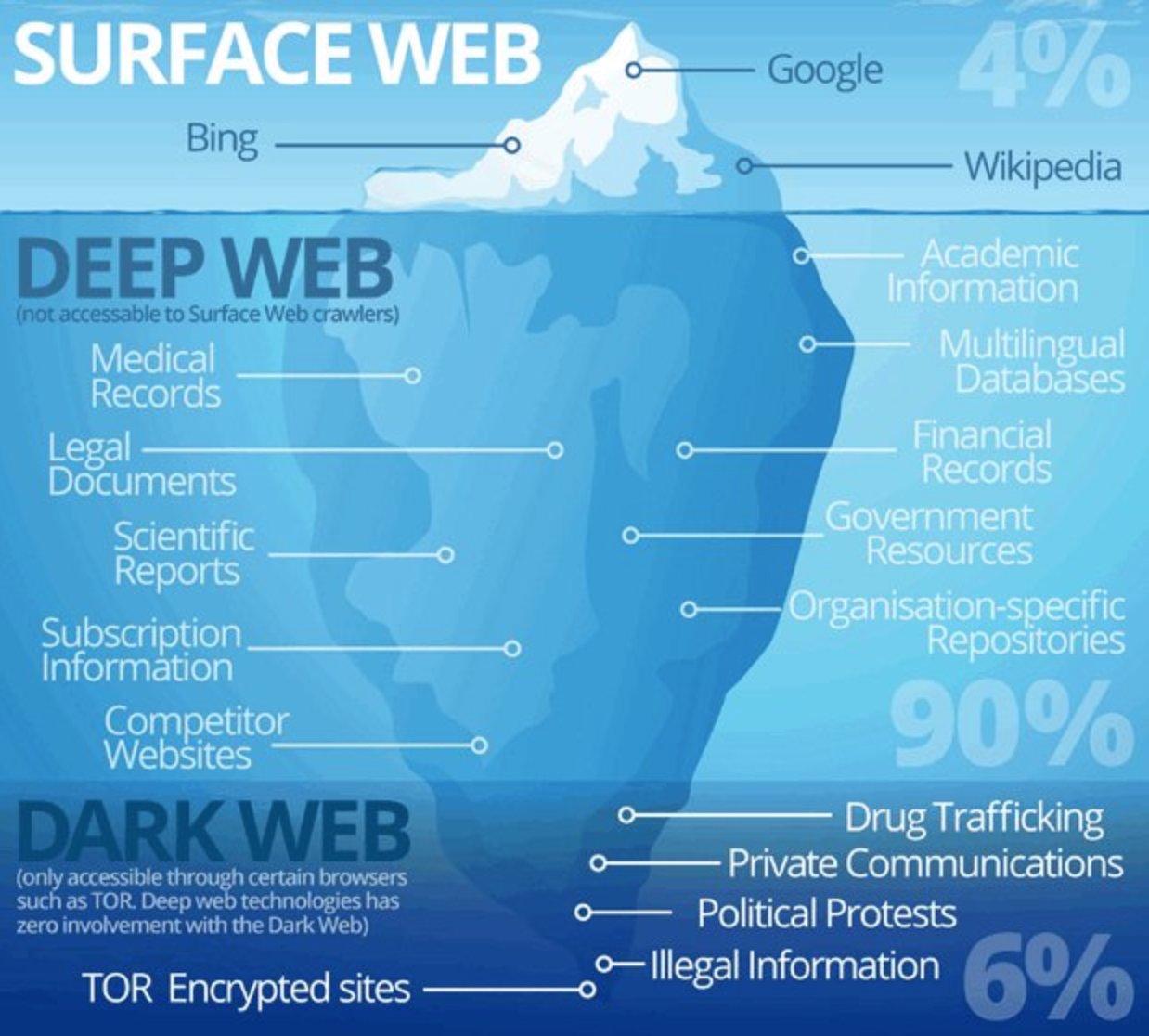
Dutch law enforcement had previously accessed the Deep Web marketplace and confiscated data linked to its activities. The data was saved and can be viewed as of 24th September 2015. This content was sourced from academic and scientific databases.
If you've ever accessed your medical records online or logged in to your email account, you've already entered the realm of the deep web. This is where sensitive and private information is stored, away from the public eye. The deep web is vast and expansive, with an estimated 95% of the internet's content residing in its depths. It can be accessed through special browsers, such as Tor, and is often associated with illegal activities due to its anonymity. However, not all content on the deep web is illicit, and it serves as an important tool for journalists, activists, and individuals who require privacy and anonymity.
"The Deep Web and its Darknets" is a study that explores the hidden corners of the internet, also known as the Deep Web. Unlike the surface web, which is easily accessible through search engines, the Deep Web requires special software or configurations to access. The study delves into the different types of content found on the Deep Web, including the infamous Darknets, which are home to various illegal activities such as drug trafficking and cybercrime. The study also examines the challenges of regulating the Deep Web due to its decentralized nature and the anonymity it provides to its users. Overall, "The Deep Web and its Darknets" sheds light on a largely unknown aspect of the internet and the implications it has for society and law enforcement.
The Deep Web is a part of the internet that is not indexed by search engines and is not easily accessible to the general public. It is a place where people can anonymously buy and sell illegal products and services, such as drugs and weapons. The anonymity of the Deep Web has made it a popular destination for those looking to engage in criminal activity, but it has also been used by whistleblowers and activists to share information without fear of persecution. However, the lack of regulation and oversight on the Deep Web has also led to instances of fraud and scams, making it a dangerous place for those who are not careful.
Diving into the Depths of the Dark Web
Behaving in a lawful and ethical manner is crucial. Even established media outlets like ABC News have published pieces exploring the darknet carding sites darknet. These websites are a segment of the deep web, necessitating extra authentication to gain entry.
The practice of policing aims at identifying and addressing particular actions on the deep web that are considered unlawful or fall under the scope of online censorship.
According to Tor's Dingledine, the dark web is a myth. He believes that the term "deep web" is more accurate as it refers to the parts of the internet that are not indexed by search engines. The deep web includes everything from private social media profiles to online banking and e-commerce platforms. While there are certainly illegal activities that take place on the deep web, it is not the haven for criminal activity that some media outlets portray it to be.
Diving into the Depths: Accessing the Dark Web
The deep web and dark web are both examples of how integral internet features are utilized to provide users with privacy and anonymity. These two concepts are often used interchangeably, but they actually refer to different parts of the internet. The deep web is the portion of the internet that is not indexed by search engines and cannot be accessed through traditional means. On the other hand, the dark web is a subsection of the deep web that requires special software to access and is often associated with illegal activity. Both the deep web and dark web have their own unique characteristics and are important topics in the realm of internet privacy and security.
The deep web is notorious for being a hub of illegal drug and prescription drug sales. If you have found WikiHow to be helpful, please consider giving a small donation to support our efforts in providing assistance to more readers like yourself. It is important to understand the difference between the deep web and the dark web.
Deep web, also known as the hidden web, is a part of the internet that is not indexed by search engines. This means that the content found on the deep web is not easily accessible to the general public. The deep web is estimated to be hundreds of times larger than the surface web, which is the part of the internet that can be accessed through search engines. The deep web is often associated with illegal activities, such as the sale of drugs and weapons, as well as the exchange of illegal pornography. However, it is important to note that not all content found on the deep web is illegal or harmful. Some of the content found on the deep web includes academic databases, government reports, and scientific research.
Deep web, also known as the hidden web or invisible web, is a part of the internet that is not indexed by search engines and is inaccessible through standard web browsers. This includes content that is password protected, encrypted, or located behind paywalls. The deep web is estimated to be several times larger than the surface web, which is the part of the internet that is easily accessible through search engines. While the deep web is often associated with illegal activities such as drug dealing and weapons trafficking, it also includes legitimate content such as academic research and government databases. Accessing the deep web requires specialized software and knowledge, and it is important to exercise caution and take appropriate measures to protect one's privacy and security.
The Deep Web, also known as the Dark Web, is a part of the internet that is not indexed by traditional search engines. This means that it cannot be accessed through a regular web browser and requires special software such as Tor to access. The Deep Web is often associated with illegal activities such as drug trafficking, weapons sales, and human trafficking. However, it is also used for legitimate purposes such as anonymous communication, secure file sharing, and protecting sensitive information. The anonymity and encryption provided by the Deep Web make it a haven for individuals seeking to avoid government surveillance or censorship. Despite its reputation, the Deep Web is not inherently illegal or dangerous, but it does require caution and knowledge to navigate safely.
Exploring the deep web can be a challenging and complex process, as it requires more effort than simply using a mainstream search engine like Google. Eileen Ormsby notes that locating specific content on the dark web can be particularly difficult, due to the lack of easily accessible and organized information. Despite the challenges, many individuals continue to venture into the deep web in search of hidden knowledge and resources.
Discovering the Mysterious Web Addresses of the Deep and Dark Web
Deep web is a term used to describe the part of the internet that cannot be accessed through search engines like Google or Bing. This part of the internet is also deep web known as the dark web as it is not indexed and is often used for illegal activities such as drug dealing, human trafficking, and cybercrime. The deep web is accessible through special web browsers like Tor and can only be accessed with a specific URL or address. It is important to note that not everything on the deep web is illegal, as there are also legitimate uses for it such as protecting whistleblowers and conducting research. However, it is crucial to exercise caution and safety measures when accessing the deep web, as it can be a breeding ground for illegal activity and potential harm.
On June 20, 2015, an article was archived that discussed the concept of the Deep web. It is a well-known fact that some individuals have taken it upon themselves to track and extort those who may be involved in pedophilia on this platform.
Explore further
Distributed by alygal27, LLC.
